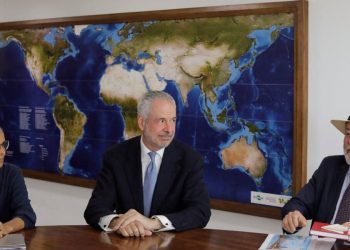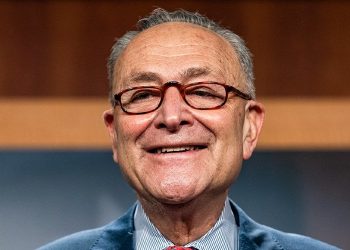Famed attorney Robert Barnes has one of the most interesting Twitter accounts for politics. It’s not just what he posts himself, which is often very informative. It’s also what he finds and retweets that grabs my attention.
He retweeted the thread below by Matt Beebe that delivers an analysis of the indictment of President Donald J. Trump. It offers insights into what powers the president possesses over classified documents that are relevant to what we’re seeing today…
Deep dive on the classified document fiasco: The entire classification scheme is a *control system* established by Executive Order and therefore applicable *only* to people below POTUS.
As CINC, Trump was entitled to do *anything* with classified material while President. Let that sink in.
Surely he would be subject to impeachment for any alleged misuse, but his authority is inherent in the Constitutional position, and there are no statutory restrictions that apply to him*.
*NOTE: The Atomic Energy Act, which established a separate classification & control scheme for certain US nuclear secrets, purports to also apply to POTUS. But this actually presents interesting separation of powers issues that aren’t so cut & dry. It’s not relevant here though.
The primary classification scheme promulgated by EO also prescribes a mechanism where classified material can be declassified.
Declassification doesn’t change the nature of the information, it changes the control system & procedures applicable to the information which are obligatory to non-POTUS actors. Again, this process is not binding on POTUS. Otherwise his power as CINC is dependent & conditional, not inherent.
Think about it — if he has the inherent power to do whatever he wants with it, does he need to follow a process (that he controls)? Does his compliance with every jot & tittle of a process (that he controls) impair his right to determine the disposition of that material? No. It cannot, or it’s not a power inherent to the Presidency.
Trump’s ham-handed explanation of this as “thinking it” declassified notwithstanding, and his inability to clearly articulate the finer points of the classification & control system and how it interacts with Article II powers doesn’t make it any less true.
This brings us to the Presidential Records Act (and subsequent case law), which clearly grants the President unilateral authority to determine what he keeps as a “personal record.”
Wait, this seems like a disaster waiting to happen — how can he be allowed to keep marital that might still be marked classified or a subsequent administration might decide to control differently? It’s quite a minefield with a bunch of inter-related gotchas.
And that’s the quandary that the PRA sought to avoid— by granting a former POTUS clarity and wide latitude surrounding his records.
To be sure, there are national security implications with a POTUS keeping material that remains sensitive or a subsequent administration might deem subject to different classification and control rules. This is why NARA has SCIFs, this is why Presidential Libraries have SCIFs, this is why a former President identifies “records custodians” (who receive continued security clearances), and this is why former Presidents are generally granted security clearances (Biden Administration refused to grant Trump a clearance by the way)
Bottom line: there is no legal basis for any of the mishandling/wrongful possession claims, and any bonafide national security concerns presented are able to be handled amicably through various procedures.
Which then beings us to the obstruction claims:
I’m somewhat disappointed in his apparent willingness to play games with NARA/DOJ (who were clearly out to get him, not to preserve Presidential Records).
My sense is that he really didn’t know what he still had, wanted to personally filter the material, and was ensured he could consider them all personal records, so he handled the initial NARA/DOJ requests unseriously. (Nobody steps on rakes better than Trump)
And I am troubled by his alleged comment to his lawyer which was essentially “Hillary had liars for lawyers and they made her problems go away, <wink-wink>” — which, by the way we only know about because of an unconstitutional piercing of the attorney-client privilege. (This should honestly concern more people than it does)
But you can’t “obstruct justice” unless there is an underlying crime. Which there isn’t here.
The entire case is built on a stack of lies and will eventually result in his complete and total exoneration.
But at what cost? It’s a dark, dark day in America.
Which then beings us to the obstruction claims:
I’m somewhat disappointed in his apparent willingness to play games with NARA/DOJ (who were clearly out to get him, not to preserve Presidential Records).
My sense is that he really didn’t know what he still had, wanted to…
— Matt Beebe (@TheMattBeebe) June 9, 2023
It is the darkest of days we’re facing, and it’s only going to get worse if this travesty is not resolved.







